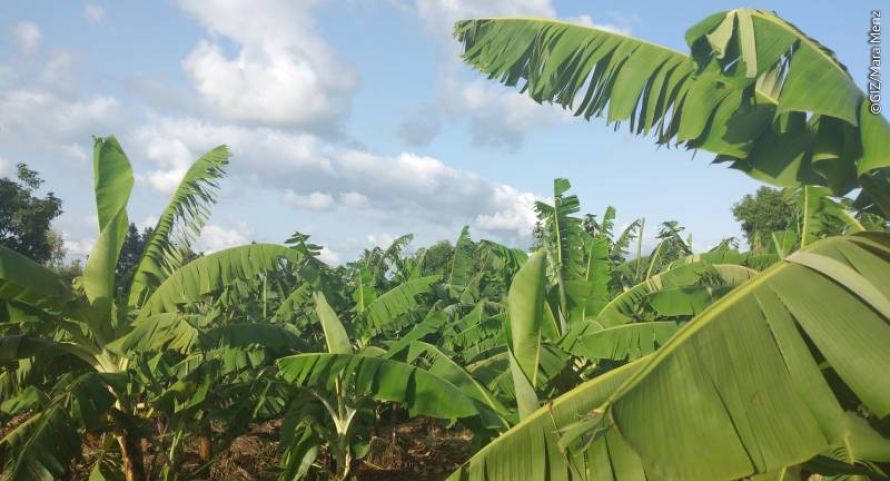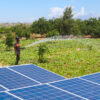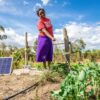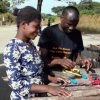34 banana and agricultural producers exchanged ideas on solar irrigation and sustainable processing possibilities

GBE Senegal discussed with the participants the advantages of solar irrigation systems for banana and other agricultural cultivation methods. The workshop also became interactive through matchmaking with other market actors, such as financial institutions.
For diesel-powered water pumps, agricultural companies have to procure and pay for diesel upfront. The fuel for solar pumps on the other hand comes from above and is available for free – it’s the sun. Fossil-fuelled pumps are technology from the last millennium. They stink, pollute the environment and produce climate-damaging CO2. Solar-powered irrigation pumps are modern state-of-the-art devices. They do not burn oil, do not pollute the environment and generate electricity in a regenerative and climate-neutral way.
That is why solar pumps are sustainable and offer producers advantages over fossil-fuelled pumps. The low operational costs usually allow the pump to have full utilization, which often leads to an expansion of production. In addition, they often allow for a longer and more consistent irrigation time, which leads to higher quality of the cultivated products. Another advantage: with the image of growing produce in a more environmentally friendly way than others, the producers have a competitive advantage and can usually sell and market their products better.
Senegalese farmers are currently learning about these and other advantages in awareness-raising workshops organised by Green People’s Energy (GBE). The first workshop started recently for the members of COPROBAT, a cooperative for banana production and processing in the Tamabounda region. Participants also learned how to use solar energy to process their bananas and got in touch with important regional market actors, such as energy companies and microfinance institutions.
It was the first in a series of awareness-raising workshops on the productive use of renewable energy for rural cooperatives organised and run by GBE. The overall objective is to sensitise cooperatives and other producer groups about the important role of renewable energies in improving their production performance, to inform them about access conditions and thus to stimulate demand in rural areas. The workshops also serve as a platform for exchange and connect agricultural producers with energy companies, microfinance institutions as well as other organisations such as NGOs that already have experience with solar electrification and can support them in their solar electrification.





